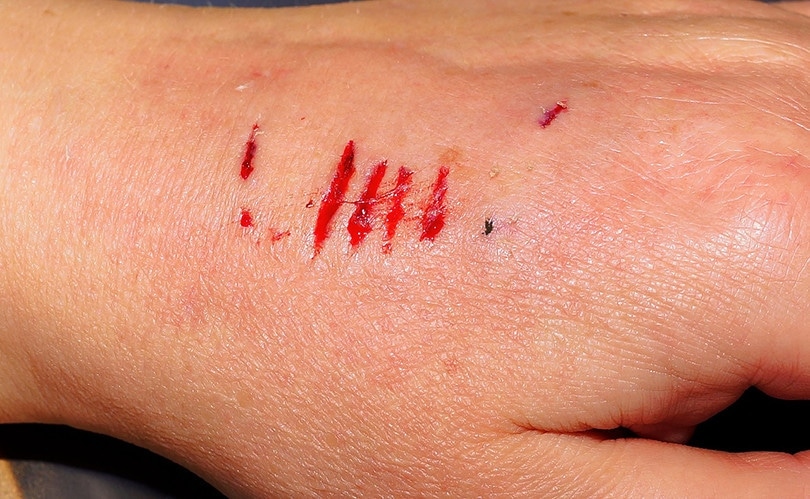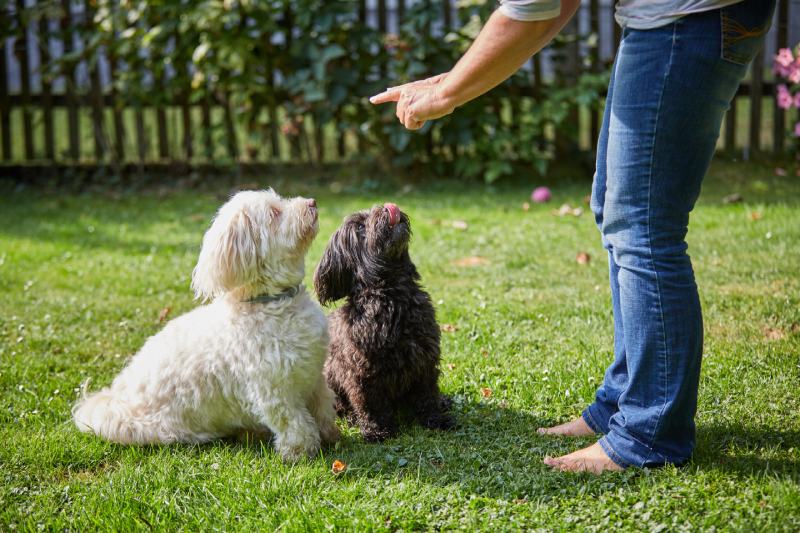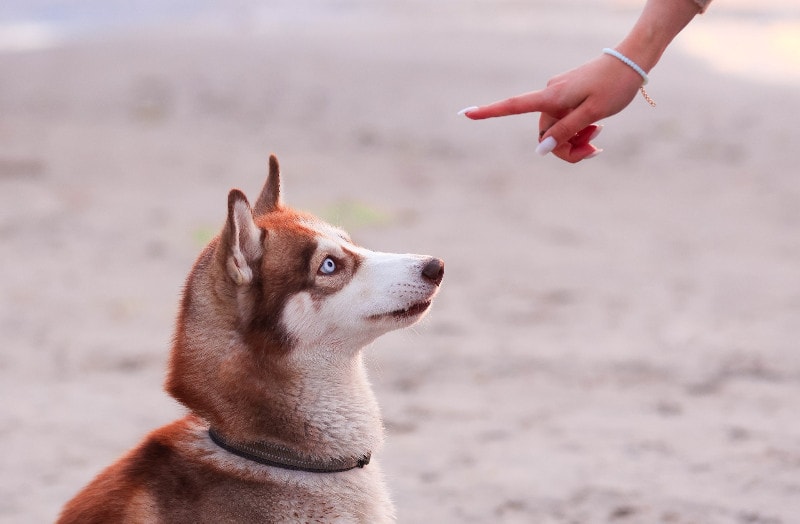
If you have a dog that likes to bite in a non-aggressive way, it can become tiresome very quickly. This behavior is very common in puppies, but adult dogs that aren’t discouraged from using their mouths can inflict harsh bites. Stopping your dog from biting can be an uphill battle, particularly if they aren’t trained as puppies. In this article, we’ll look at why dogs bite and the steps you can take to stop them from doing it.
Before You Begin
Before you teach your dog or puppy not to bite, you need to confirm that it’s not aggressive behavior you are seeing. If your dog mouth or bites you during play or mouths you in a relaxed posture, chances are, it’s normal dog behavior. However, biting when afraid or protecting something valuable indicates aggression and must be dealt with differently.
The best way to help your dog if they’re displaying aggressive biting is by asking your veterinarian for guidance. There are ways to correct the behavior at home, but a qualified animal behaviorist is the best chance you’ll have at correcting your dog’s behavior before they end up injuring you (or someone else).
Playful biting and mouthing are often done with a relaxed posture without displaying their teeth in a snarl. Play biting is gentler but can still hurt if your dog gets carried away, so it’s good to nip the problem before it escalates.
The 6 Tips on How to Stop a Dog From Biting
1. Teach Bite Inhibition
Bite inhibition should ideally be taught in puppyhood since it is when your dog is most malleable and easily trained. However, you can teach an adult dog bite inhibition if you follow the correct procedure. The idea behind bite inhibition is teaching your dog that they mouth and bite too hard, which hurts. Your dog won’t want to hurt you, and letting them know you’re in pain and repeating the process will eventually encourage them to stop biting entirely.
When your dog begins to bite and mouth at you, play with them as you usually would. When they bite down hard, immediately yelp and let your arm go limp. The loud shout should bring your dog up short, and your limp limb will signify to them that they’ve hurt you. When your dog stops, praise them and continue to play. This step has to be repeated multiple times for your dog to learn to control how hard they bite.

2. Try a “Time-Out”
Next, follow the same principle as the previous step. Play with your dog, and when they go to bite or out you, yelp and immediately turn around. Ignore your dog for 10 to 20 seconds, and get up to move away from them if they continue to mouth you. This effectively stops the play altogether. Return to your dog and begin to play but repeat the same yelp each time your dog moves to put teeth to your skin. At this time, it’s a great idea to introduce a toy that your dog can chew on and incorporate into play!
3. Redirect to Toys
Toys are designed to be bitten, so using one when your dog feels the urge to mouth you can be a great distraction. Play with your dog, and when you see them working up to bite or mouth, give them the toy to bite down on instead. Try not to stop the play since you want your dog to recognize that play continues even if they’re engaged with the toy and not your skin.
Try playing a game that doesn’t involve contact with your skin, like fetch or tug of war. If it’s your ankles or feet your dog always goes for, try carrying your redirection toy with you and using it immediately when you feel contact with your skin. The goal is to teach your dog that only playing without any mouthing will get your attention and keep it.

4. Try a Deterrent
If other methods aren’t working well and your dog insists on biting and mouthing you, try using a deterrent spray. This might seem extreme, but it’s effective at getting your dog to realize that nothing good comes from biting you! Use the spray on your clothing and skin where your dog likes to bite. When you’re playing, and your pup tries to bite you, they’ll taste the sour spray, which should stop them in their tracks. Continue using the deterrent in the same areas for around 2 weeks; by the time the week is up, your dog should know that biting you causes a bad taste in their mouth.
5. Don’t Tempt Your Dog
The worst thing you can do when teaching your dog not to bite and chew is to use your hands to play! Poking or tapping your dog’s face when you’re playing, waving your hands above them, or wiggling your fingers are invitations to bite you, so be conscious of what you’re doing and try not to tempt them.
Move away when your dog bites you but don’t jerk or flail. These moments can encourage your dog to chase you and try again. Don’t let this stop you from playing with your pup, however. Play is really important for the bond between the dog and the owner. Plus, it’s fun!

6. Be Consistent
Lastly, it’s essential to be consistent with your anti-bite training. Everyone in the family should be involved and follow the same methods, and choosing your boundaries (and sticking to them) is the key to getting your dog to stop. If you let your dog bite you one day but try to rectify it the next, your dog can get confused about your boundaries. Stick with one method and be consistent, reacting each time your dog bites. With time and consistency, each training method discussed can work to stop your dog from biting.
 Why Do Dogs Bite and Mouth?
Why Do Dogs Bite and Mouth?
Dogs love to bite, chew, and mouth things because it’s part of how they explore their world. Adult dogs often get excited and use their mouths to show their enthusiasm, either on your skin or clothes. Puppies learn how to taste and sense using their mouths from a very young age, and this drive doesn’t disappear into adulthood. However, while puppies busily explore everything with their mouths (including your favorite shoes and furniture), they should also learn bite inhibition. Bite inhibition is when a dog learns how to be gentle with its mouth, which is often done through playing.
If a puppy bites mom or their littermates a little too hard while playing, a yelp will make them stop and prick their ears. However, that isn’t enough, and puppies should also be taught that human hands and feet should always be treated gently. Teaching a puppy that human skin is sensitive is very important and can influence how hard a dog bites when they’re not playing.

Final Thoughts
Dogs that bite and mouth playfully are doing so out of instinct. Puppies play with their littermates this way, and it helps them understand their inhibition and impose control. Some dogs continue to bite into adulthood, so curbing the problem is vital if it’s bothering you or others (particularly with bigger dogs). Biting out of aggression or fear is entirely different and should be discussed with your veterinarian so specialist behavioral help can be sought.
Featured Image Credit: Kapa65, Pixabay
The post How to Stop a Dog From Biting: 6 Expert Tips & Advice appeared first on Pet Keen.



 Why Do Dogs Bite and Mouth?
Why Do Dogs Bite and Mouth?

